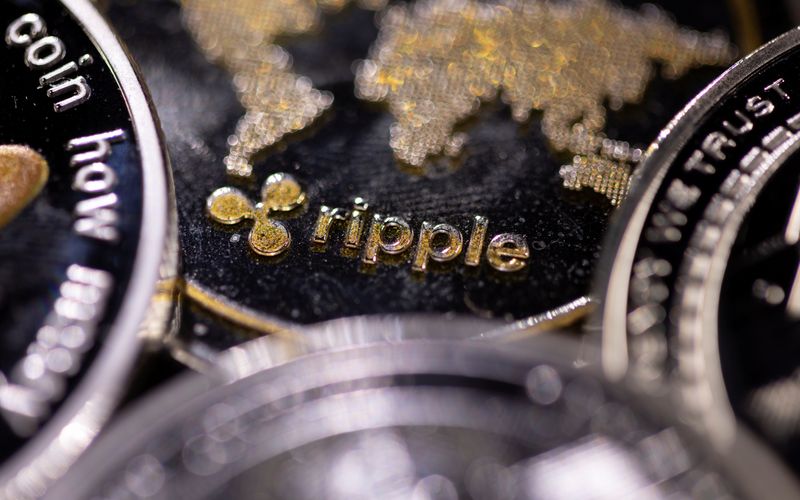(Reuters) - Crypto firm Ripple launched a stablecoin pegged to the U.S. dollar on Tuesday, looking to disrupt a market in which the top two incumbents account for nearly 90% of the value.
The venture marks a major milestone for Ripple, coming more than a year after a landmark win in a case against the Securities and Exchange Commission last year.
However, it will face the uphill task of elbowing into a concentrated market where the two biggest players - Tether and USD Coin (USDC) - account for nearly 90% of the total market capitalization, according to data from CoinGecko.
The stablecoin, RLUSD, will be available globally on a slew of platforms including Uphold, Bitstamp, Bitso, MoonPay, Independent Reserve, CoinMENA and Bullish, Ripple said.
Stablecoins are digital tokens designed to keep a constant value. They are backed by traditional currencies such as the U.S. dollar or euro.
They can be more suitable for payments and for converting crypto tokens into traditional currencies as they are shielded from the wild price fluctuations seen in bitcoin and ether.
Each RLUSD token is 100% backed by U.S. dollar deposits, U.S. government bonds and cash equivalents, Ripple said.
The company has appointed Sheila Bair, former chair of U.S. banking regulator Federal Deposit Insurance Corp, on the advisory board of RLUSD.
Previously, Bair was also the chair of the board at government-backed mortgage finance company Fannie Mae and the assistant secretary for financial institutions at the U.S. Treasury Department.

The board will include Ripple co-founder and executive chair Chris Larsen, along with David Puth, former CEO of CENTRE Consortium.
CENTRE, which previously oversaw USDC, was a joint venture between crypto exchange Coinbase (NASDAQ:COIN) and stablecoin network Circle. It was shut down last year, with Circle taking full control over the issuance and governance of USDC.